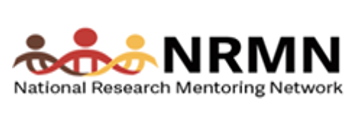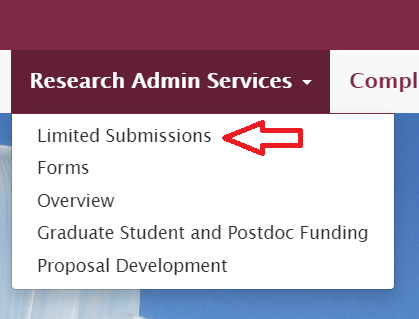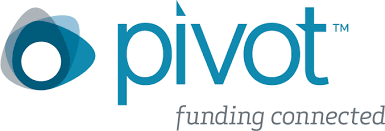 |
|
Indirect Costs Procedures for FY 2022 and BeyondBy Luis Cifuentes, Vice President for Research and Dean of Graduate School, President John Floros, and Executive Vice President and Provost Carol Parker
The following article expands on a Research and Graduate Studies Digest article published in October 2019. In order to meet the LEADS 2025 strategic plan goal of Elevating Research and Creativity, we need resources. Typically, moneys from the State, tuition and fees, endowment income and gifts, investment income, license fees, royalties and equity, and auxiliary units have limitations that do not allow for full investment in research. The best source of funds for research, scholarship, and creative activity is external sponsors who are able and willing to pay for full, allowable indirect costs (IDC). The reason for charging IDC, often times referred to as overhead or facilities and administrative costs, is to recover costs incurred in the performance of research that are not paid for directly (e.g., salaries and stipends of researchers and students, lab supplies and equipment, travel) by the grant or contract. The IDC rate at NMSU is negotiated with the federal government. Often, the Vice President for Research (VPR) gets asked to waive some or all indirect costs (IDC) budgeted in a grant submission. When principal investigators ask the VPR to waive IDC that a sponsor is willing and able to pay, they are asking the VPR to approve use of internal resources (institutional and general funds mostly) to cover overhead costs. These are internal resources that could be spent on faculty start-up, graduate student support, required cost-sharing on grants, instrument purchases and maintenance, seed grants and bridge funding. Every IDC dollar waived is a dollar not available for the strategic needs of NMSU’s research enterprise. Not all sponsors, Federal and otherwise, pay the full, negotiated IDC rate. For example, the Department of Education regularly has an IDC rate cap of 8%, significantly below the 48% on campus rate charged by NMSU. It is the policy of the Office of the Vice President for Research to allow submissions to sponsors who do not pay the full rate, including submissions to sponsors that do not pay any IDC. Every time that NMSU accepts an external grant and contract that does not provide full IDC, however, we must use other funds to defray the cost of personnel (administrative, financial, maintenance, janitorial, etc.), compliance, safety, IT, utilities, library and research facilities and other. Beginning on July 1, 2021 (FY22), the following will apply:
It is imperative that our research enterprise mindset move past IDC waivers and focus on generating additional resources needed to meet LEADS 2025 goals. |
|
LEADS 2025 COVID19 Performance Fund
By Alisha Giron, Assistant Vice President for Research
The Office of the Vice President for Research and Dean of Graduate School invites proposals for LEADS 2025 COVID19 Performance Fund, that is derived from the Higher Education Emergency Relief Funds (HEERF). Eligible applicants are NMSU faculty as well as staff in the offices of the Chancellor, the President, Academic Affairs, Student Success, Administration and Finance, and Research and Graduate School. Applicants must propose projects that address limitations caused by the COVID19 pandemic, are aligned with NMSU's LEADS 2025 goals as well as the intent of the HEERF funds. Efforts must aim to enhance faculty and staff readiness to improve student success at NMSU. Awards will range from $50,000 and $750,000 and must be expended by June 30, 2023, with 50% of the funds to be used by June 30, 2022. The deadline to submit five-page proposals, budget and additional information is April 23, 2021. The complete announcement is available here. To access the mandatory template to be used for development of proposal click here. For more information, please send email to vpr@nmsu.edu. |
|
Research Administration Spotlight: Michelle Gavin
By Hamid Mansouri Rad, Senior Proposal Development Specialist, RAS
Every year, Research Integrity and Compliance (RIC) processes hundreds of applications for research involving human subjects. Last year RIC processed more than a thousand applications to be reviewed by the Institutional Review Board (IRB), a federally mandated body established to comply with the U. S. Department of Health and Human Services regulations for the protection of human subjects. While principal investigators submit these applications through NMSU’s electronic workflow system known as the Maestro, each of the submitted applications go through comprehensive compliance checks by Ms. Michelle Gavin, Research Integrity Coordinator at RIC, before they are reviewed by the IRB. Those who submit IRB applications or pose questions about the process are more than likely familiar with Michelle, but it would be a good idea to let NMSU community learn more about her and what she does at RIC.
When did you begin working at NMSU?
I joined NMSU in January 2003 to support information technology (IT) initiatives within the Physical Science Laboratory (PSL) and the Office of the Vice President for Research/Graduate school. Since joining NMSU, I have also been involved in many STEM related outreach and education programs as well as NMSU committees which included serving as the co-chair of the NMSU Outcomes Assessment Committee, participating in University Outcomes Assessment Council, being a representative in Campus Planning, Space, Loss Prevention, Loss Control, and serving in the Online Training Committees.
When did you join RIC?
I began working at RIC in 2011 to use my IT, software development, and project management skills to move the IRB and other committee processes from paper based to an electronic environment. Along with Ed Zenisek, a Research IT software developer, we designed and developed the Maestro Review System. Since it became operational in January 2013, Maestro has provided researchers, RIC, and the IRB committee the mechanism to process over 6,500 IRB submissions with over 4,087 users from NMSU, NM Department of Health, and other non-NMSU researchers. The Maestro team has also supported the Arrowhead Center activities including the Launch program and the Aggie I-Corps.
Using Maestro has been extremely beneficial especially given the challenges we all have faced during the past year dealing with COVID 19 and having to work remotely. Maestro allowed faculty, staff, and students to continue their research projects as well as initiate new research projects involving human subject participants.
Please tell us about your responsibilities at RIC.
I provide IRB application process support as well as Maestro System support to the research community and the IRB committee. I also offer user training for researchers as well as committee members, both on using the Maestro system and the IRB process. I handle all phone calls, emails, organizing Zoom meetings for researchers and the IRB Committee. In addition, I develop the IRB meeting agendas, draft minutes and reports, design informational products, and attend to any special projects that the IRB committee initiates, namely analyzing the IRB user surveys and changes in the federal, state, and agency regulations.
What do you enjoy most about your job?
The most enjoyable part and yet sometimes most challenging is working with researchers (faculty, staff, and students), helping them accomplish their research, and being compliant with regulations ensuring that the human participants are protected.
What challenges do you face?
The most challenging part of this job is not having enough time and resources for all that is expected and required. Some days are extremely challenging, but the IRB committee and its members are amazing and I truly appreciate their contribution. The IRB Chair, Dr. Merranda Romero Marin, and Vice Chair, Dr. Joe Tomaka, make the job worth doing. We work as a great team and support each other. I just wish there were more resources to help support them and the research community.
Michelle received her Bachelor of Business Administration in Business Computer Systems from NMSU and later, while at Sandia National Laboratories, obtained her Master of Business Administration with a specialization in Management of Information Systems from the College of Santa Fe. She describes spending time and being there for her family and sharing life with her pets as the most important things in her life. “My partner, Shane, and I have been so blessed with the opportunity and gift of a very special 9-year old border collie named Lucky,” she states. “In her new forever retirement home, she is finding such a joy in agility training as well as furthering her training to become a therapy support dog.” Michelle and Shane also adopted two bichon frise puppies from Montana who are the pride and joy of their day. Besides their pets, Michelle and Shane enjoy doing BBQ and compete. But as she explains, COVID has put a damper in both Lucky’s agility and BBQ competitions. However, with summer around the corner they are looking forward to these activities opening back up as well.
If you have any questions about the IRB or how to use Maestro, please don't hesitate to contact the compliance office at 575-5461 or email ovpr@nmsu.edu. The IRB Chair and Michelle also invite you to meet with them via Zoom to discuss any questions you have about the IRB and your research projects.
|
Michele Gavin, Research Integrity Coordinator, NMSU |
Principal Investigator Academy Webinar on April 13, 2021
By Cindy Ramirez, Proposal Development Specialist, RAS
The Principal Investigator (PI) Academy will hold a webinar from 2:00pm to 3:00pm on April 13, 2021. The webinar will be offered by Ms. Patricia Marquez Knighten, the Director of Innovation and Commercialization, within the Office of Intellectual Property at NMSU’s Arrowhead Center. Ms. Knighten has twenty years experience working on Technology Transfer, Commercialization and Transition for federal laboratories, licensees of lab or university developed technology, ecosystem and network builder to support tech commercialization initiatives. While the primary audience of this webinar is PI Academy members, the webinar is open to all faculty and researchers interested in obtaining crucial information and research compliance issues. the To register for this webinar, please send email to cindyram@nmsu.edu. |
Patricia Marquez Knighten,
|
NIH Support for Research Excellence (SuRE): Limited Submission
By Hamid Mansouri Rad, Senior Proposal Development Specialist, RAS
National Institutes of Health has released its funding opportunity announcement for the Support for Research Excellence (SuRE), a “research capacity building program designed to develop and sustain research excellence in U.S. higher education institutions that receive limited NIH research support and serve students from groups underrepresented in biomedical research with an emphasis on providing students with research opportunities and enriching the research environment at the applicant institutions.” Principal Investigators (PI) with active NIH Research Project Grants (R01s, R35s, U01s, R21s, R00s, and R15s) are not eligible to apply for a SuRE award. Further, PIs with active SCORE grants may apply in their last year of funding. As the NIH SuRE is a limited submission, eligible NMSU applicants must notify Research Administration Services of their intent to respond to this opportunity by sending email to ras@nmsu.edu subject line: “NIH SuRE Limited Submission” to be considered on a first-come first serve basis. To learn more about this program and its requirements please visit the NIH SuRE funding opportunity page at: https://grants.nih.gov/grants/guide/pa-files/PAR-21-169.html |
|
NIH Support for Research Excellence (SuRE-First)
By Hamid Mansouri Rad, Senior Proposal Development Specialist, RAS
National Institutes of Health (NIH) Support for Research Excellence (SuRE) program has released a special research funding opportunity titled, First Independent Research (First), for faculty members who have not had prior independent external research grants. To be considered for review by NIH, research proposals submitted to this program must fall within the scope of the NIH mission. For more information about the mission of each NIH center please visit http://www.nih.gov/icd. To learn more about this program and its requirements please visit the NIH SuRE FIRST funding opportunity page at: https://grants.nih.gov/grants/guide/pa-files/PAR-21-173.html |
|
NSF CAREER Workshop to be Held on May 14, 2021
By Hamid Mansouri Rad, Senior Proposal Development Specialist
The Office of the Vice President for Research and Dean of Graduate School will hold a one-day workshop on developing effective NSF Faculty Early Career Development (CAREER) proposals on Friday May 14. To be eligible to apply for the NSF CAREER funding, applicants must meet the following requirements:
Applicants may submit only one proposal in each cycle and only three proposals before obtaining tenure position. |
|
Become A Better Mentor: Faculty Mentor Development Training
|
Download the Program Flyer Here. |
NM FAST offers NSF SBIR Training
The NM FAST and Arrowhead Center SBIR Accelerator (ACSA) will be offering a series of events focused on the National Science Foundation’s SBIR program. ACSA trainings are intense, twelve-week cohorts that culminate in a proposal submission. An NSF cohort will be offered, free of charge, this summer from June 9 – August 27. As a precursor to the cohort, there will be an informational webinar tomorrow, Thursday, April 8th. Registration is free and available here.
Timeline of important dates:
For more information, please contact Dana DeRego Catron at dderego@nmsu.edu. |
|
Limited Submission Funding OpportunitiesBy Hamid Mansouri Rad, Senior Proposal Development Specialist, RAS
Research Administration Services maintains a list of limited submission funding opportunities for NMSU research community. The list is accessible through a link on the Research website, through the Research Administration tab. NMSU users can also access the list directly on SharePoint at https://eltnmsu.sharepoint.com/sites/ResearchCreativity/SitePages/Limited-Submissions.aspx. We encourage NMSU researchers to periodically visit the site and if they are interested in any of the opportunities to please inform us by sending email to ras@nmsu.edu. |
|
Pivot Funding Opportunity Database
This is a reminder that in order to assist NMSU faculty and staff in locating external funding opportunities, the OVPRGS has purchased a subscription to ProQuest’s Pivot software available at https://pivot.proquest.com/session/login.
To request a one-on-one or group Pivot training, send email to hamid@nmsu.edu. |
|
Graduate School |
|
Plans of Study: Are They Really Important?By Luis A. Vazquez, Regents Professor and Associate Vice President for Research and Graduate Studies
|
|
Need Guidance on Securing External Funding? Contact Me!
If you are an NMSU graduate student or post-doctoral scholar needing guidance on securing external funding, please contact me at fee@nmsu.edu. Please also visit the list of current funding opportunities that I maintain on the research website and let me know if you have any questions.
Chong-Hwey Fee
|
Proposal Development Special Specialist, RAS |
|
Questions and comments regarding NMSU’s Research and Graduate School Digest should be directed to Hamid Mansouri Rad, Ph.D. at hamid@nmsu.edu, (575) 646-6429. |
|












